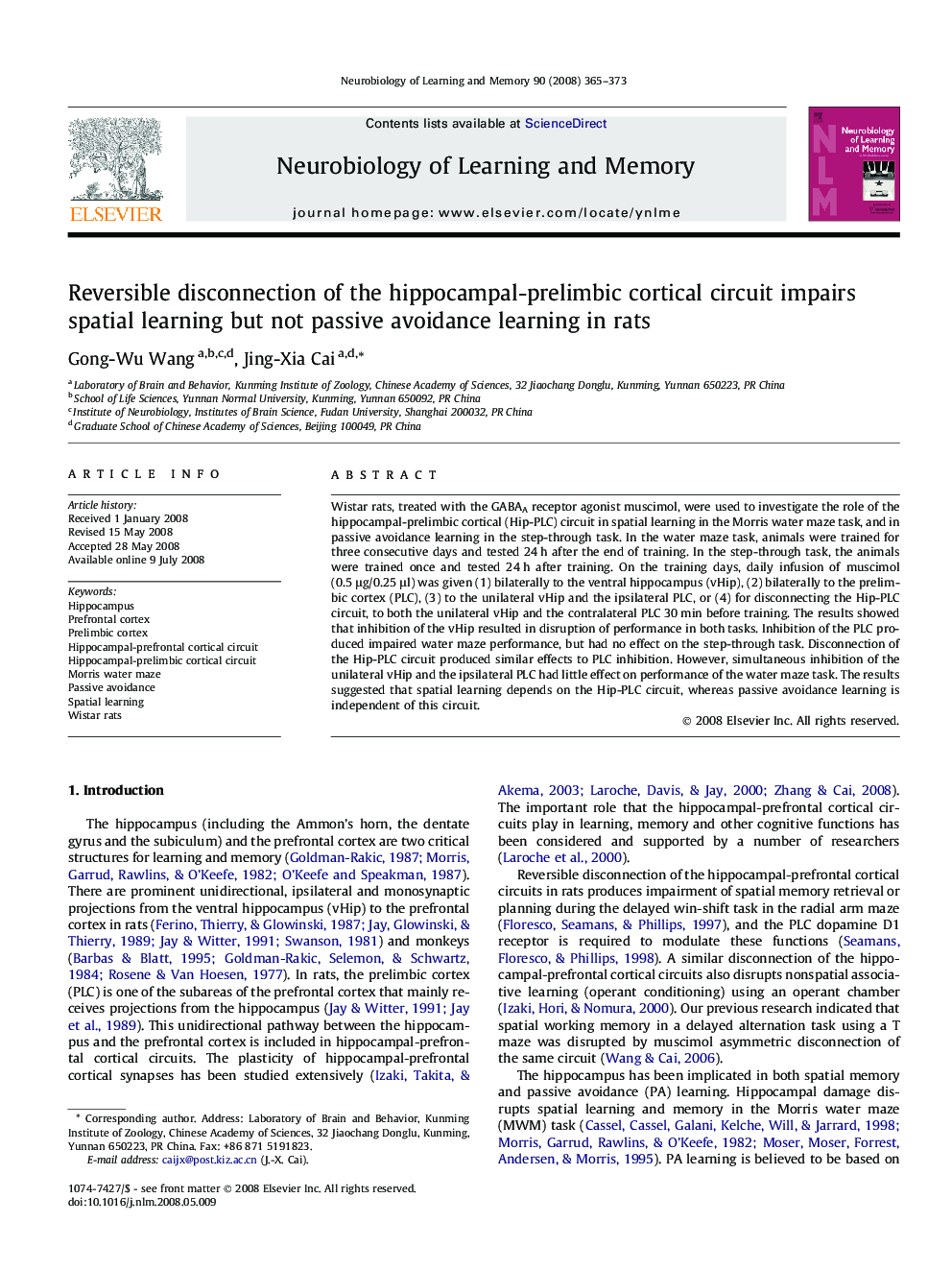| کد مقاله | کد نشریه | سال انتشار | مقاله انگلیسی | نسخه تمام متن |
|---|---|---|---|---|
| 937102 | 1475211 | 2008 | 9 صفحه PDF | دانلود رایگان |

Wistar rats, treated with the GABAA receptor agonist muscimol, were used to investigate the role of the hippocampal-prelimbic cortical (Hip-PLC) circuit in spatial learning in the Morris water maze task, and in passive avoidance learning in the step-through task. In the water maze task, animals were trained for three consecutive days and tested 24 h after the end of training. In the step-through task, the animals were trained once and tested 24 h after training. On the training days, daily infusion of muscimol (0.5 μg/0.25 μl) was given (1) bilaterally to the ventral hippocampus (vHip), (2) bilaterally to the prelimbic cortex (PLC), (3) to the unilateral vHip and the ipsilateral PLC, or (4) for disconnecting the Hip-PLC circuit, to both the unilateral vHip and the contralateral PLC 30 min before training. The results showed that inhibition of the vHip resulted in disruption of performance in both tasks. Inhibition of the PLC produced impaired water maze performance, but had no effect on the step-through task. Disconnection of the Hip-PLC circuit produced similar effects to PLC inhibition. However, simultaneous inhibition of the unilateral vHip and the ipsilateral PLC had little effect on performance of the water maze task. The results suggested that spatial learning depends on the Hip-PLC circuit, whereas passive avoidance learning is independent of this circuit.
Journal: Neurobiology of Learning and Memory - Volume 90, Issue 2, September 2008, Pages 365–373